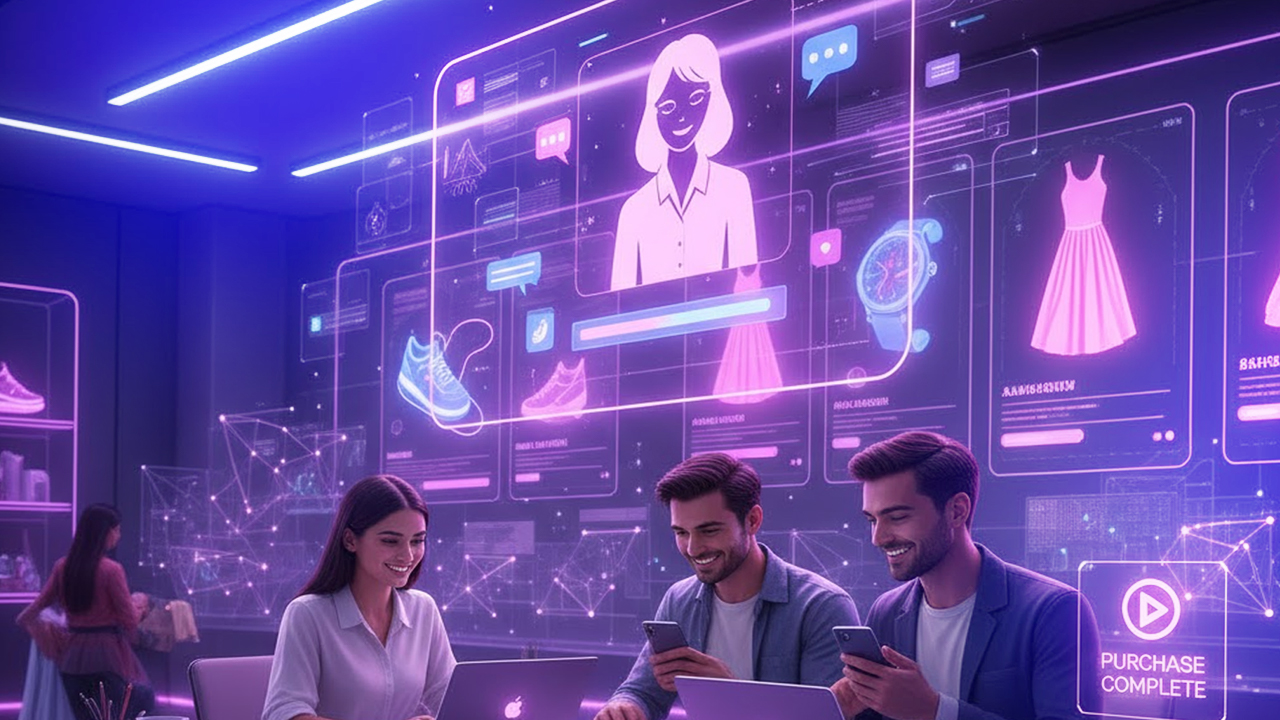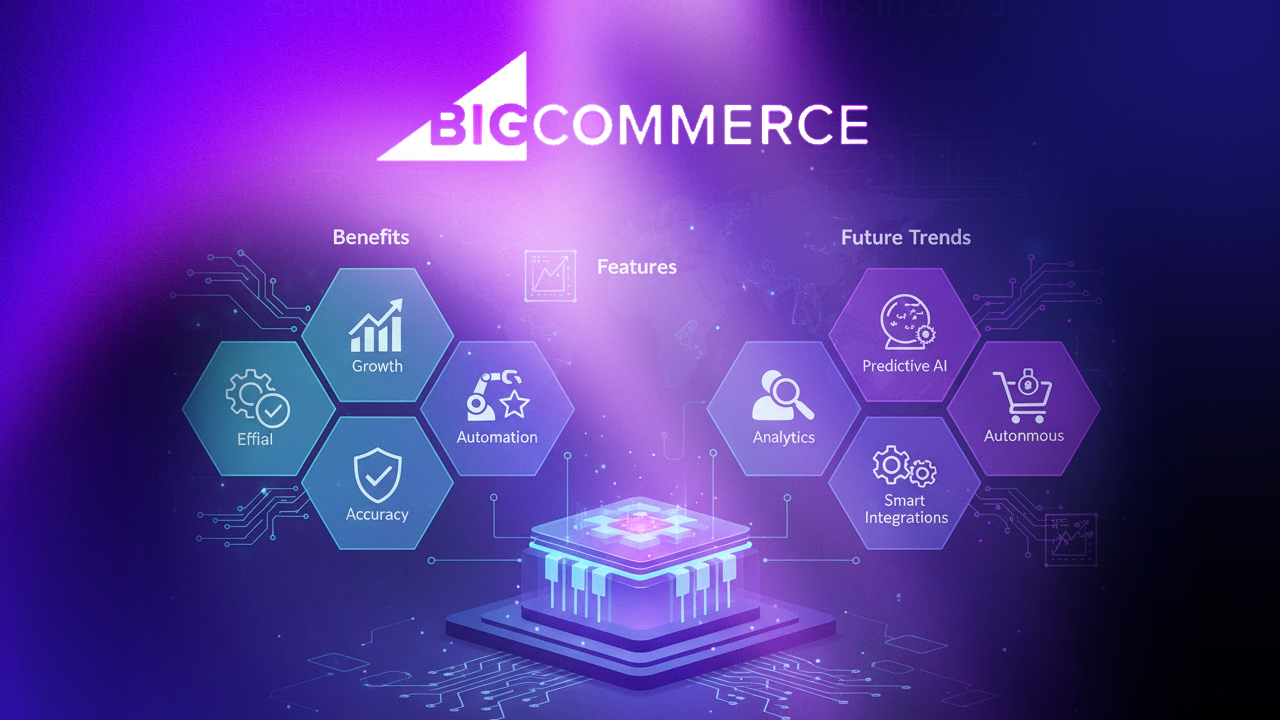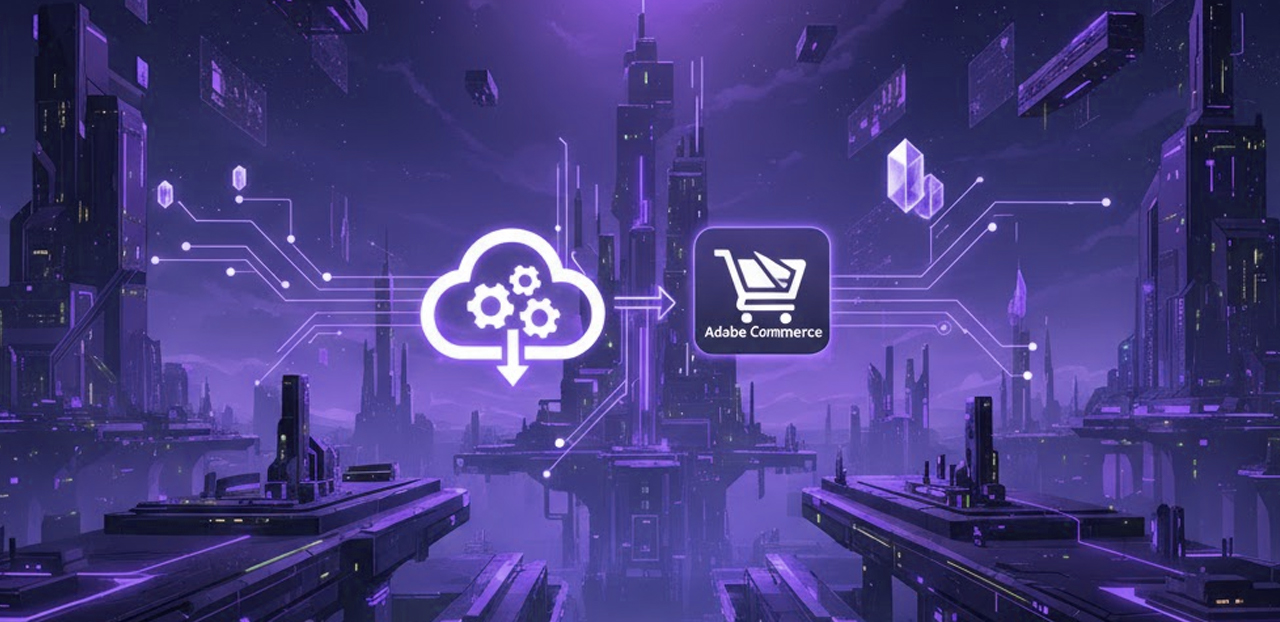While AI-powered diagnostics and robotic surgeries dominate headlines, a quieter yet equally important transformation is underway: AI is redefining how healthcare organizations buy, sell, deliver, and personalize experiences across the care ecosystem.
Whether it’s a hospital sourcing syringes through predictive procurement, a pharmacy chatbot guiding a diabetic on the right glucose monitor, or a claims engine denying an incorrect code before it’s even filed, the use of AI in healthcare commerce is shaping efficiency, profitability, and patient empowerment.
According to the 2024 HIMSS AI in HealthTech Report:
- 79% of healthcare leaders plan to expand AI use in operational and commercial workflows by 2026.
- The AI in healthcare industry is expected to reach $188B by 2030, with 42% attributed to non-clinical applications, especially commerce.
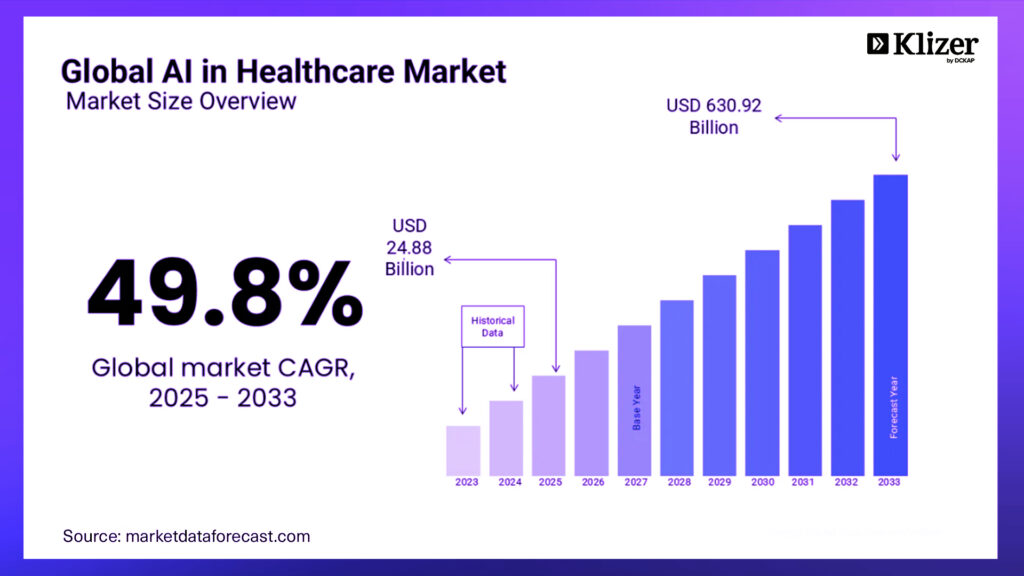
ON THIS PAGE
How is AI used in healthcare
1. Intelligent Healthcare Supply Chains
McKinsey estimates AI-driven supply chain systems can reduce inventory costs by 20–30% and improve service levels by 65%. AI transforms healthcare logistics by embedding foresight, automation, and adaptability into fragile supply networks.
- AI-based Demand Forecasting: Analyzes EMR trends, public health alerts, historical usage, and weather to forecast product demand (e.g., surgical gloves during a flu season spike).
Inventory Simulation Models: Use machine learning to identify optimal reorder points and safety stock levels across decentralized hospitals and labs.
Disruption Prediction: AI scans geopolitical data, port delays, and environmental hazards that may delay medical device shipments or raw materials.
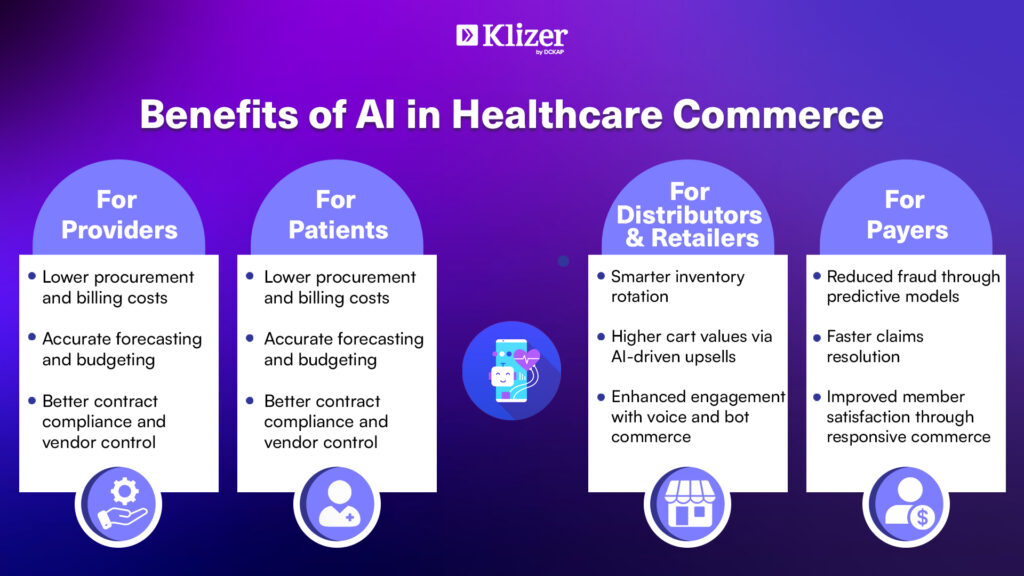
2. Personalized Digital Health Commerce
Generative AI in healthcare is now powering not just consultations, but commerce, generating personalized buying guides, reminders, and FAQs on the fly. Healthcare shoppers today don’t want generic product listings; they want experiences curated to their health needs, conditions, lifestyle, and insurance coverage. In fact, 63% of consumers are more likely to purchase healthcare products from a platform that offers AI-powered personalization. Let’s see the specific use cases:
- Recommendation Engines: Suggest personalized OTCs, wearables, or preventive tools based on patient profile, prior visits, and wearable data.
- AI Chatbots for Guided Discovery: Trained on clinical knowledge bases + product data, chatbots help users select the right items (e.g., a CPAP mask compatible with their prescription).
- Price Transparency Tools: Use AI to fetch pricing data across vendors and cross-match with the consumer’s coverage to show real-time copay estimates.
Also See our Upcoming Webinar – The future of eCommerce is headless and composable
3. Revenue Cycle Optimization
Commercial viability in healthcare hinges on speed, compliance, and accuracy in revenue operations. Here’s how AI is used in healthcare RCM:
- Auto-Coding Using NLP: AI reads doctors’ notes and maps ICD, CPT, and HCPCS codes with contextual accuracy.
- Denial Prevention Models: Predicts which claims may be rejected and alerts billers to correct them pre-submission.
- Fraud Detection: Flags billing anomalies—like upcoding, duplicate claims, or medically unnecessary procedures.
4. Conversational and Generative AI in Healthcare Commerce
The rise of generative AI in healthcare isn’t limited to documentation. It’s helping healthcare brands interact, educate, and sell with dynamic, context-aware conversations. For example, a virtual assistant can help a caregiver compare 3 wheelchairs, check Medicare eligibility, and place the order, all without typing.
Here’s how:
- Sales Enablement Bots: Train on product manuals, regulatory documents, and clinical guides to answer B2B buyers’ queries in real time.
- Voice Interfaces: Let elderly users refill medications or check device compatibility using natural language.
- Document Generation: Auto-generate invoices, coverage summaries, return labels, and usage guides post-transaction.
5. AI in B2B Healthcare Procurement
AI use cases in healthcare commerce are just as important in enterprise procurement.
- Dynamic Vendor Scoring: AI evaluates vendors based on quality history, pricing trends, delivery delays, and contract terms.
- Predictive Budget Allocation: ML models forecast purchasing needs based on patient load, procedure types, and seasonality.
- Contract Intelligence: NLP tools parse 100-page PDFs to highlight renewal dates, SLAs, or risky clauses.
How to Deploy AI in Healthcare eCommerce
Strategic implementation matters more than tools. Here’s how to do it right:
- Start with a High-ROI Use Case: Examples could include: Examples: Chatbots for FAQs, denial prediction, or inventory optimization for top-selling SKUs.
- Build a Data-Ready Foundation: Ensure structured, anonymized, and real-time data flows across EHR, eCommerce, CRM, and RCM systems.
- Choose AI That Fits Your Workflow: Use predictive AI for claims and forecasting, generative AI in healthcare for chat and documentation, and NLP for compliance parsing.
- Pilot, Validate, and Scale: Set clear KPIs like cost savings, resolution time, and user satisfaction. Begin in one department before expanding enterprise-wide.
Ensure Explainability and Compliance: Use transparent models and document decision logic for FDA audits, HIPAA reviews, or payer disputes.
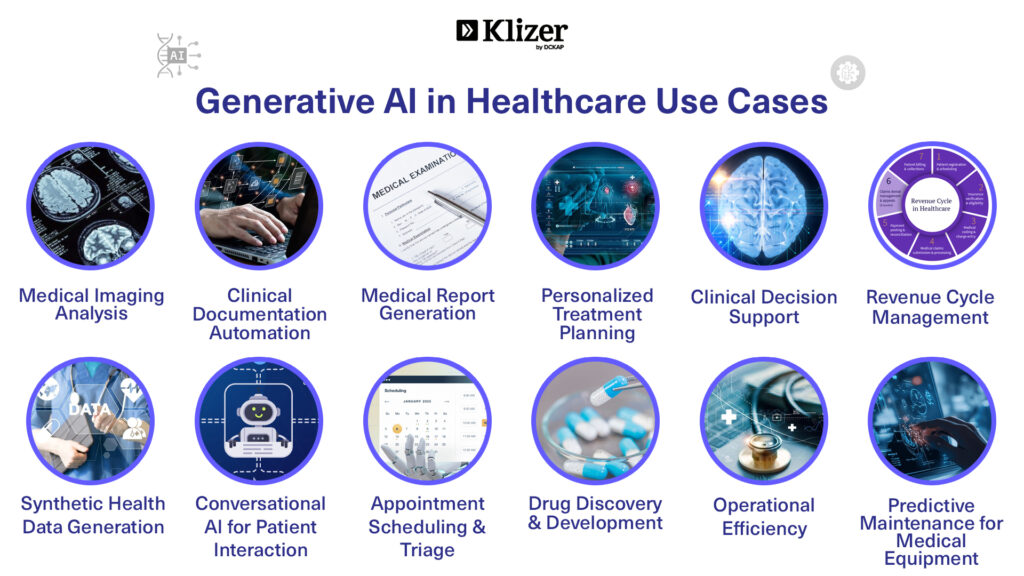
Final Thoughts
The use of AI in healthcare commerce is a strategic advantage. It connects the dots between medical need and commercial fulfillment in a way that’s fast, intelligent, and human-friendly.
From generative AI chatbots that personalize product discovery to predictive procurement engines that avoid shortages, AI in healthcare is building an invisible infrastructure for smarter transactions, better outcomes, and sustainable business models.
Organizations that embrace it will not only thrive in revenue and efficiency but also trust, loyalty, and long-term impact.
If you want to know more about ecommerce solutions for the healthcare industry, reach out to our team and find all the answers you need!




